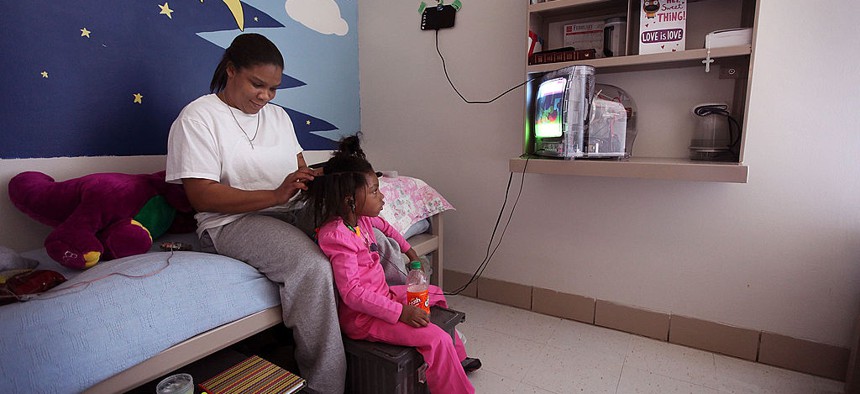Opinion: Clean Slate benefits children and families
Here’s why Albany should pass this legislation

Scott Olson / Staff
With only a handful of days left, our leaders in Albany have a chance to make a real difference in the lives of children and families by passing Clean Slate.
Based on our work with children, youth and families state-wide, we know that permanent criminal records create life-long barriers to opportunity for over 2 million of our friends, colleagues, neighbors and family members. They also undermine economic mobility and success for families across generations, pushing them deeper into poverty. This legislation must be considered not only in the context of individuals with criminal records, but also the impact of record sealing on children and families and the communities in which they reside. Clean Slate is a crucial step toward racial and economic justice, addressing some of the deep racial disparities that are evident at every stage of the criminal legal system, and providing pathways to more full participation in our neighborhoods, communities and society, which is essential to the well-being of children, youth and families.
Research shows the deleterious intergenerational effects of parental criminal records across different domains of family well-being: income, savings and assets, education, housing, mental health, and family strength and stability. The impacts of having a criminal record do not disappear after one generation; rather, it feeds the cycle of poverty that continues to produce harmful, unjust and inequitable outcomes for the children and family members of formerly justice-involved individuals.
In New York, the civil consequences of a conviction can permanently impair someone’s future, even if the individual never reoffends. The Council of State Governments has found more than 1,000 civil consequences of conviction in New York. These legal and regulatory sanctions and restrictions attach to both felony and misdemeanor convictions and affect people's lives in critical ways, including their ability to access and keep a job and housing and their ability to access loans, credit and educational opportunities, all of which impacts their ability to take care of their children and family and to contribute to society. These consequences ensure that punishments last far beyond the term of any court-imposed sanction, essentially becoming a life sentence of stigma and lost opportunity that impacts individuals and their families.
It is a form of cruel and unusual punishment to restrict people and – by familial connection – their children and family members to a life of perpetual punishment, where they are barred access to their fundamental rights and to opportunities to better their lives and to meaningfully contribute to the advancement of our society. Bryan Sevenson, the Founder & Executive Director of the Equal Justice Initiative, has said: “Proximity has taught me some basic and humbling truths, including this vital lesson: Each of us is more than the worst thing we’ve ever done.” We need to stop defining people by their worst mistakes and treating them unjustly because they made justice-involved mistakes. Now is the time for New York to stop placing ceilings, barriers and limits on people’s rights and possibilities based on their past mistakes.
Clean Slate will make a significant impact in our work at the Children’s Defense Fund to build communities where children, youth and families can thrive. It would provide automatic record sealing for misdemeanors after 3 years, and for felonies after 7 years, removing barriers for housing and most jobs. We know that we are all safer when we have equal rights and access to participate in our communities, go to school, find meaningful work, live in stable housing, and care for our families. That’s why Clean Slate is a children’s issue, and why the Children's Defense Fund-New York urges our lawmakers to pass and the governor to sign this racial justice legislation into law now.
